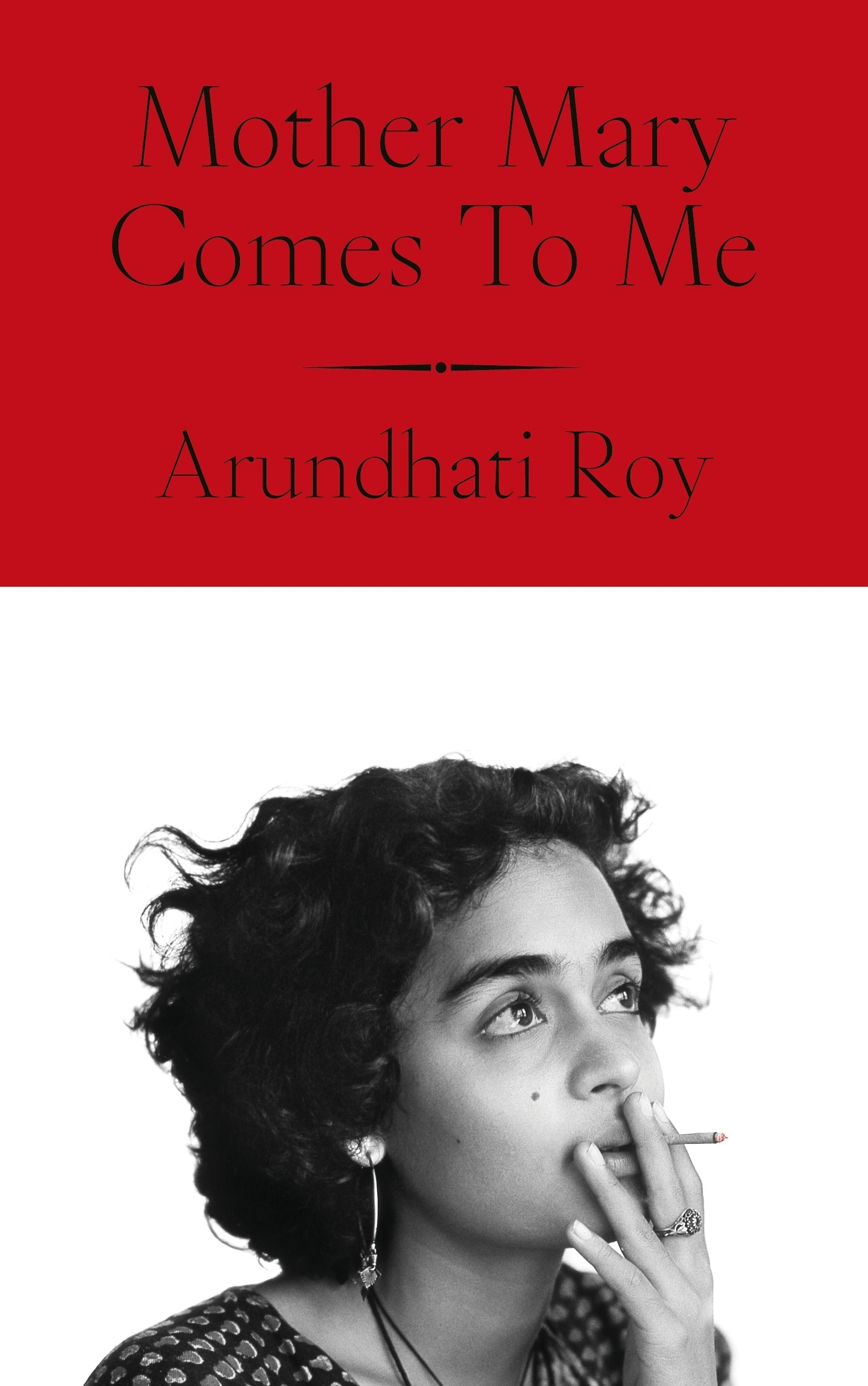Arundhati Roy
Mother Mary Comes to Me
Mother Mary Comes to Me
Couldn't load pickup availability
The incredible first memoir from the Booker-winning radical icon Arundhati Roy, author of The God of Small Things.
SUSAN'S REVIEW
Arundhati Roy arrived with some fanfare on the literary scene with her Booker Prize-winning debut novel, God of Small Things. She was also a marketing dream: intelligent and articulate, as well as young and beautiful. Since those heady days of fame, Roy has become a passionate political activist, committed to exposing the state-sanctioned violence and misogyny of her Indian culture. Her recently released memoir, Mother Mary Comes to Me, combines her writerly talents – engaging prose, lively storytelling and keen powers of observation - with her enduring concern with social justice. The book is also, as its title suggests, a portrait of Roy’s mother, a woman whose influence haunted Roy for her entire life. Mother Mary did indeed “come to” her daughter in ways she strenuously resisted but ultimately embraced.
Roy’s early memories of her mother, Mary Roy, reveal her perception of a deeply conflicted individual: a mother who brutalised her two children but was publicly revered for her establishment of a progressive co-educational school. A mother who frequently told her children she wished they had never been born, but who earned nation-wide respect for championing women’s rights. Roy strives to understand her mother’s appalling, at times pathological, behaviour to her and her brother; she learns that her mother was abandoned by an alcoholic husband, was deeply resentful of motherhood and humiliated by her dependence on begrudging relatives. But such knowledge didn’t overcome Roy’s profound antipathy to her mother: at the age of eighteen, she escapes her familiar village and flees to the teeming crowds of Delhi. She refuses for years to have any contact with the woman who had caused her so much emotional and psychological pain.
The middle section of the memoir details Roy’s tumultuous young adulthood in Delhi: sex, drugs and a naïve kind of pride in her impoverished independence. But even the newly hedonistic Roy remains aware of the importance of her mother’s moral toughness; knowing how easily she could slip into the addiction that plagues family members, she finds the strength to complete her degree in architecture. She also understands how her gradual transformation to a tireless political activist is indebted to her mother’s life-long fight for gender equality and educational opportunities for the less privileged. I found the overtly political sections of the memoir particularly riveting. Roy becomes involved in active protests against the machinations of Indian politics: the large-scale dam projects which she argued would displace millions of people without providing promised benefits like irrigation and drinking water; the rise of Hindu nationalism and the consequent violent suppression of Muslims, and of dissent in general; the militarisation of Kashmir; and in a poignant reference to the title of the memoir, Roy raises her voice in support of the Kashmiri mothers of “disappeared” sons. Mary Roy’s influence is also evident in her daughter’s decision not to have children. Like her mother, Roy privileges work in the public and political spheres instead of settling for domesticity; but unlike her mother, she had the choice to live an unconflicted life. It will take years for mother and daughter to reconcile, and to discover mutual admiration for each other’s work. It will take years to be able to use the word “love.”
Roy’s memoir has not been without its detractors. Its politics have been criticised as unsubtle and ill-informed. While my limited knowledge of Indian politics makes me unable to evaluate those criticisms, I admire Roy’s moral courage and conviction; her willingness to lend her fame and donate her prize-winning money to expose the unarguably corrupt nature of modern Indian politics. Other reviewers have criticised the memoir on aesthetic grounds, arguing that its mix of lyricism, reportage, myth and polemic is confusing for readers. But I found this formal and stylistic mix a convincing re-creation of the working of memory: do we not think, imagine and recall in different linguistic registers and different emotional states? These shifts in style and tone also gave me a vivid sense of the writer herself as a layered individual: a woman capable of anger, tenderness, self-doubt; as a well-read and highly intelligent champion of the poor and voiceless; as a daughter, sister, lover and friend with a gift for intimacy and a strong need for independence.
Mother Mary Comes to Me has confirmed my belief in the importance of political activism as a weapon against greed, religious intolerance and censorship. It has reminded me of the value of forgiveness. It is beautifully written, each sentence a finely honed gem. It made me cry. What more can one ask of a book about a vastly different culture and family history from mine?
Susan
PUBLISHER REVIEW
Arundhati Roy's first work of memoir, this is a soaring account, both intimate and inspiring, of how the author became the person and the writer she is, shaped by circumstance, but above all by her relationship to her extraordinary, singular mother Mary, who she describes as 'my shelter and my storm'.
Distraught and even a \"little ashamed\" at the intensity of her response to the death of the mother she ran from at age eighteen, Arundhati began to write Mother Mary Comes to Me. The result is this astonishing, disconcerting, surprisingly funny chronicle-unique and simultaneously universal, of the author's life, from childhood to the present, from Kerala to Delhi.
With the scale, sweep, and depth of her novels and the passion, political clarity, and warmth of her essays, Mother Mary Comes to Me is an ode to freedom, a tribute to thorny love and savage grace-a memoir like no other.
Share


